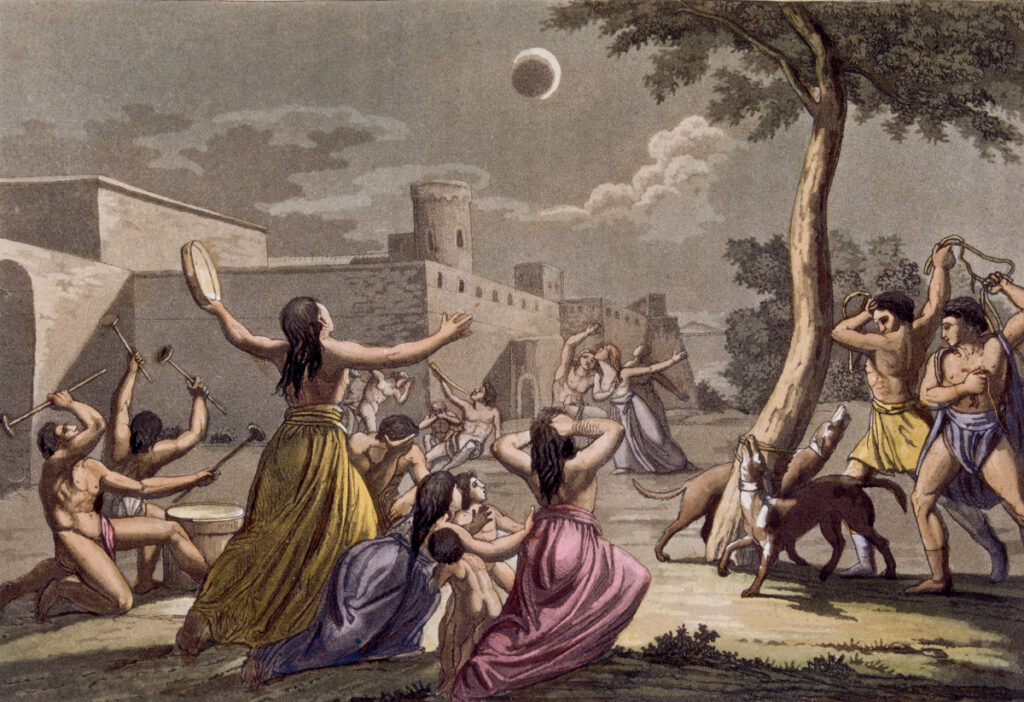North America is getting ready to see a very rare celestial event: a total solar eclipse. Different tribes across the continent have different stories and ideas about this event. While science can explain solar and lunar eclipses, these native stories offer a rich weave of cultural understanding and interpretation.
The Cherokee have an interesting story about a huge frog that eats the sun or moon during an eclipse. The Cherokee thought that the slow disappearance of the sun or moon from the sky was caused by a walosi, or huge frog, before they knew what an eclipse was. To get things back in order, they would shout or hit rocks together loudly to scare the frog away and bring back the celestial body.
In the same way, the Kumeyaay group from southern California has a story about how the sun and moon were lovers who couldn’t be together. Their stories said that the sun and moon couldn’t get married because it would mess up nature. During an eclipse, they sneak a quick moment together before going their separate ways again.
The Navajo group, on the other hand, see eclipses as holy times to think and pray. They think it is wrong to watch the eclipse, so they stay inside, don’t eat or drink, and show respect for the celestial event in a quiet way.
In the past, eclipses have also been linked to important events, like the founding of the Haudenosaunee Confederacy on August 22, 1142. The Mohawk, Oneida, Onondaga, Cayuga, and Seneca Nations make up this confederacy. Its history can be traced back to a solar eclipse, which shows how important natural events have been to indigenous societies.

Assistant head and archivist at the Sequoyah National Research Center Erin Fehr stresses how important these native stories and ideas are. She says that they show respect for the sun and moon and a desire to find important ways to understand natural events.
Scientific knowledge can help us understand how eclipses work, but native stories can help us learn more about their spiritual and cultural meanings. These stories show how people from different cultures understand and interact with natural events in very different ways. They show how humans and the universe are linked.
Read More News:
- Lucky Chance: Cherokee County Safety Town Returns to Bascomb Elementary
- The 2024 Roswell Music Festival: A Celebration of Music, Community, and Giving Back
- Teen Faces Charges in Connection with Incident at Sprayberry High School
As the world gets ready to see the upcoming total solar eclipse, it serves as a lesson of the lasting impact of indigenous knowledge and how important it is to value different points of view when we try to understand the natural world. Being exposed to these tribal ideas and stories helps us understand the world and our place in it better.

